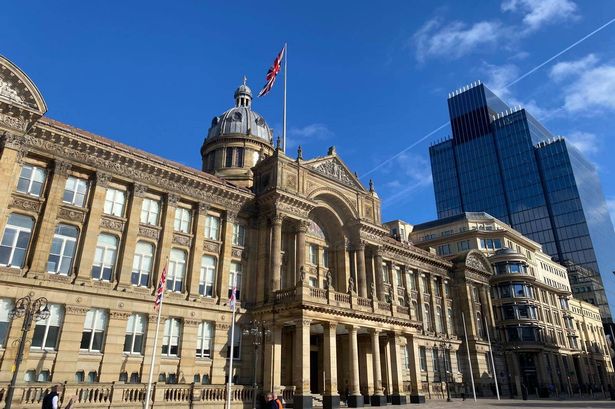There are renewed calls for a public inquiry into Birmingham’s financial meltdown amid claims that the council did not need to ‘go bust’ Birmingham City Council House (Image: Local Democracy Reporting Service)
Birmingham City Council House (Image: Local Democracy Reporting Service)
Academics and financial experts from across the country are demanding a public inquiry into their claims that Birmingham City Council ‘did not need to go bankrupt’.
The group say only an independent public inquiry will be able to properly probe the circumstances surrounding the chaotic events surrounding the city council’s 2023 declaration of financial distress.
They say the truth otherwise will remain hidden from public sight by ‘vested interests’. BirminghamLive has previously pressed for an inquiry but one has been refused by the Labour Government and Labour-led council on the grounds one is not needed, with other ‘best value’ investigations taking place into specific issues of concern.
But the group of senior professors and lecturers from across the UK have come together to crunch the numbers and say a public inquiry is required.
They claim that crucial figures cited at the time to justify the council’s ‘de facto bankruptcy’ were ‘incorrect and misleading’, including forecast levels of reserves and alleged equal pay liabilities.
They believe they were ‘materially mistated’ and this led to a massive hike in council taxes, an unprecedented programme of budget cuts and service closures, and the forced takeover of the city council by commissioners.
In a letter to Communities Secretary Steve Reed, the academics call for a public inquiry to establish how and why the first Section 114 Notice was issued by the council’s financial chief, despite a lack of accurate accounting information.
They also say they are concerned the impact has been felt across Birmingham and could be repeated in other local authorities.
You can read more about their claims here.
“Given the scale of the financial difficulties across local government, we are concerned that the issues underlying the Birmingham case could be repeated as other authorities enter into financial difficulty.
“We therefore call on the inquiry to learn the lessons of the Birmingham case, provide answers to the people of Birmingham, and, crucially, ensure that these lessons inform the upcoming programme of local audit reform.”
Figures and analysis by Dr James Brackley, formerly of Sheffield’s Audit Reform Lab and now based at the University of Glasgow, illustrates apparent largescale discrepancies between the figures provided by the council in the legal notices issued at the time, and what has since been revealed in the delayed published accounts.
They claim the reserves situation was not as dire as it was made out to be in 2023, and that in fact the council had been adequately providing for a future equal pay claim. Only when the predicted size of the liability was massively increased to ‘up to £760 million’ did panic set in, they say.
The settlement since agreed between the council and the unions and a law firm representing around 6,000 claimants has generated a bill for the council of around £250m. Payments to non-claimants and any new claims could take that figure higher but ‘nowhere near’ the estimates cited previously, leaving a shortfall of around £300m.
The academics also say it is ‘commonplace’ for local authorities to ‘project’ what may be needed to plug deficits in future without that being grounds for bankruptcy, as long as there are adequate reserves. “In the Birmingham case, the council appears to have both overstated its project budget deficits and materially underestimated its available funds.”
The council underestimated its available ‘earmarked and unearmarked’ reserves by £272.4m, according to the Brackley analysis.
Taken together, that means the council did not need to declare its financial distress at that time, they say.
The signatories to the open letter include professors of accounting and finance from across the country.
 Dr James Brackley
Dr James Brackley
The formidable list includes report author Dr James Brackley, supported by other senior academics including Prof Dan Herbert, Dean of Education for Business, Law, and Humanities and Social Sciences at Keele, formerly of University of Birmingham; Prof Christine Cooper, Professor of Accounting and co-editor-in-chief of Critical Perspectives on Accounting.
Also signing are Prof Adam Leaver, Professor of Accounting and Society at Sheffield; and professors of accounting Prof Stewart Smyth, Cork University; Prof Anne Stafford, University of Manchester; Prof Bill Lee, Sheffield; Prof Hendrik Vollmer, University of Warwick.
Prof Rhys Andrews, University of Cardiff’s professor of public finance, and Prof David Bailey, Professor of Business Economics at Birmingham City University, also signed; along with Research for Action, a worker co-operative producing research to further economic, social and environmental justice with a focus on local democracy and accountability.
We have contacted the council to discuss the report. The council has previously denied providing any misleading or inaccurate figures, with the information that determined the Section 114 Notice based on estimates of what was known at the time.
